
A point, whether of an idea, joke or tapered object, is always arrived at in the immediate. You get the point when you get the point. Even if you don’t get the point right away, when you do get it, you get it at a precise moment.

In the game of darts you get points by getting the point of your dart to stick to a point aimed at, but over and above the mechanics of the game the real point is to enjoy it.
But why? Why do we enjoy what we do?

Science says that enjoyment is a matter of brain chemistry. A characteristic of people with depression and mental illness is anhedonia: an inability to gain pleasure from normally pleasurable experiences.

Brain expert Dr. Stuber PhD might say (and did), “GABA neurons located in the VTA are just microns away from dopamine and are negative regulators of dopamine function… A dysfunction in these GABA neurons might potentially underlie different aspects of neuropsychiatric illness, such as depression” (UNC Healthcare).
Psychologists treat happiness as if it’s mysterious. They recommend working on a meaningful career, spending time with friends, savoring the day and so on, but happiness doesn’t come from outside.
Assuming your GABA neurons aren’t buzz-killing dopamine release, there are as many ways to enjoy as there are people but it boils down to one thing: We enjoy what we enjoy (because we enjoy it).
It’s circular – like Donna Summer singing, “Love to love you baby.”

X is true because of Y. Y is true because of X. We dance because it’s enjoyable. It’s enjoyable because we dance. We play to have fun and have fun when we play. If we’re forced to play, it isn’t play anymore. It’s emotion first, then realization and confabulation.

If the point of enjoyment is to enjoy, the question is: What is the meaning of true enjoyment? This was asked in Quora (a question-and-answer site) and people responded. (Note: names have been changed to protect the anonymous).
Tommy said enjoyment is, “Celebrating life, not one’s life; just life!” Dieter said enjoyment is, “Living the moment.”

Sally listed enjoyments: “Looking at the smile of a new born baby. Eating Mango by plucking and stealing it from an orchard. Getting wet in rain without bothering about getting wet.”

Simon said, “Everyone has different meaning of enjoyment! They have different source of enjoyment but for me … it’s something which I do for myself!”
And there it is.
Maybe there’s a little Simon in all of us. There’s just something about one’s self that makes it special to one’s self. To you, there’s no you quite like you.
Psychologists say it’s good to love one’s self. Why, if there was no you – no you as a living organism with thoughts and feelings in an environment – there would be…what?

But vain self-importance blocks the flow of enjoyment like crimping a garden hose. When things don’t go the way we want, we’re unhappy so the trick is to loosen up and enjoy what you get (see post: Is it serious?).
 We have a limited idea of who we are. Yes, we are each a bag of skin crowned by a cranium, but do we end in skin? What about air in lungs and energy from the sun in our bellies? Going into atoms we see nothing there – just energy waves. We’re energy waves. Not that this matters when you stub your toe, but a “hard” world is softened with a realization of how interconnected and diaphanous (light and insubstantial) this all is.
We have a limited idea of who we are. Yes, we are each a bag of skin crowned by a cranium, but do we end in skin? What about air in lungs and energy from the sun in our bellies? Going into atoms we see nothing there – just energy waves. We’re energy waves. Not that this matters when you stub your toe, but a “hard” world is softened with a realization of how interconnected and diaphanous (light and insubstantial) this all is.
Philosopher Alan Watts saw interconnections, saying, “where there are no flowers there are no bees, and where there are no bees there are no flowers. They’re really one organism” (Conversation With Myself).

A dandelion seed has fine hairs allowing it to ride on the wind. The wind is, in a manner of speaking, a part of itself. Why do advertisers associate their product with love and happiness? It isn’t the product in itself that we want: it’s the feeling the product is said to impart.
 What you love is what you enjoy. Enjoyment is a one step process: Express love for something and you are happy.
What you love is what you enjoy. Enjoyment is a one step process: Express love for something and you are happy.
Author of The Element (2009), Ken Robinson, said, “To be in your element you have to love it… Being good at something is not a good enough reason to do it…It’s about finding the thing that resonates within you most fully” (see Ken Robinson video).
There’s a little verse from an ancient Hindu text called the Rig Veda that tells of the tree of life and two birds. One bird eats the tree’s fruit (some good some bad) and the other watches. They represent two aspects of ourselves. We are the bird eating – we participate in the action of life (killing and eating), experiencing joy and sorrow – but in contemplation, we are the second bird who watches. The trick is to be aware of the second bird watching the first bird participating.

You walk into a forest and suddenly you are struck by the wonder of this place. You feel the mystery of being and life itself. A cedar waxwing flies by. That such a creature should be there! That the universe should be here! That’s something that excites you to wonder. Take a deep breath and simply enjoy (see also: The Point of Enjoyment 2).
 You’re up before the sun “working in a coal mine, going down down,” and someone says, “Lord! I am soooo tired. How long can
You’re up before the sun “working in a coal mine, going down down,” and someone says, “Lord! I am soooo tired. How long can  But few people see signs these days and those who do are maligned. We might crave a vision but all we have is TV. It’s not because the signs aren’t there that we don’t see them.
But few people see signs these days and those who do are maligned. We might crave a vision but all we have is TV. It’s not because the signs aren’t there that we don’t see them.


 No sooner do you have this realization when you see a sign. But it isn’t the sign that catches your attention. It’s the sign spinner. Stopped at a streetlight, you watch the sign spinner. Suddenly life doesn’t seem so bad.
No sooner do you have this realization when you see a sign. But it isn’t the sign that catches your attention. It’s the sign spinner. Stopped at a streetlight, you watch the sign spinner. Suddenly life doesn’t seem so bad. What you thought was going to be “one of those days” changes into something beautiful when you open yourself to connection and possibility.
What you thought was going to be “one of those days” changes into something beautiful when you open yourself to connection and possibility. Jump forward: now you’re in a lab cubicle waiting for a nurse to take your blood. You’re listening to the Moody Blues sing “
Jump forward: now you’re in a lab cubicle waiting for a nurse to take your blood. You’re listening to the Moody Blues sing “ As Sandy Nelson put it in in the 1961 hit “
As Sandy Nelson put it in in the 1961 hit “ It’s because we each see through a mental window of our own making. From this self-window the world is negotiated. We look for advantages. We envy. We see faults. We worry. Our world is decorated with self-created irritations and we feel different and alone within our self-made, self-identity.
It’s because we each see through a mental window of our own making. From this self-window the world is negotiated. We look for advantages. We envy. We see faults. We worry. Our world is decorated with self-created irritations and we feel different and alone within our self-made, self-identity.


 In quantum theory there’s a phenomenon known as “superposition” from which it’s possible for the same particle to be doing two contradictory things simultaneously (
In quantum theory there’s a phenomenon known as “superposition” from which it’s possible for the same particle to be doing two contradictory things simultaneously ( Think of a time when you felt a feeling of love, of beauty, of understanding, of oneness with everything and everyone.
Think of a time when you felt a feeling of love, of beauty, of understanding, of oneness with everything and everyone. It’s like we’ve been hypnotized by a magician (our self). He snaps his fingers and says, “Wake up. Look around.” And you do. No longer is reality filtered by fear and desire. It’s direct. What you see blows your mind.
It’s like we’ve been hypnotized by a magician (our self). He snaps his fingers and says, “Wake up. Look around.” And you do. No longer is reality filtered by fear and desire. It’s direct. What you see blows your mind.


 It’s strange. We feel so alone. Talk to someone and there’s a gulf between. We’re a universe apart. We don’t see how the consciousness looking back at us is the same as our own. The profound is hidden in the ordinary.
It’s strange. We feel so alone. Talk to someone and there’s a gulf between. We’re a universe apart. We don’t see how the consciousness looking back at us is the same as our own. The profound is hidden in the ordinary. It’s hard to see a self-image (Latin ego “I”). It hides behind opinions believed true, but if you follow the trail of emotions it leaves behind like anger at a slight or jealousy or a need to win and so on, in those emotions you find ego. It’s a condemning voice inside your head that’s critical and blaming.
It’s hard to see a self-image (Latin ego “I”). It hides behind opinions believed true, but if you follow the trail of emotions it leaves behind like anger at a slight or jealousy or a need to win and so on, in those emotions you find ego. It’s a condemning voice inside your head that’s critical and blaming. Too bad they don’t work – at least, according to the New England Journal of Medicine (Huffington Post, 2011).
Too bad they don’t work – at least, according to the New England Journal of Medicine (Huffington Post, 2011).

 The word spirit comes from Latin “spiritus” meaning, “breathing.” Like “moo” or “BANG” such words mean their sound. Spirit is like that. It is an imitation of breathing (Online Etymology Dictionary).
The word spirit comes from Latin “spiritus” meaning, “breathing.” Like “moo” or “BANG” such words mean their sound. Spirit is like that. It is an imitation of breathing (Online Etymology Dictionary).
 What if, instead of categorizing things into two opposites (either-or, self-other, good-bad, life-death, happy-sad…) we consider opposites as one process like a game of ping pong.
What if, instead of categorizing things into two opposites (either-or, self-other, good-bad, life-death, happy-sad…) we consider opposites as one process like a game of ping pong. Without ping there is no pong. Happiness (ping) goes with sadness (pong). Life (ping) goes with death (pong).
Without ping there is no pong. Happiness (ping) goes with sadness (pong). Life (ping) goes with death (pong).

 Life is a doing. It’s happening (see the
Life is a doing. It’s happening (see the  Let go your eggo (aka ego) and go out there and let the universe happen as you.
Let go your eggo (aka ego) and go out there and let the universe happen as you.

 In 1927 a small woman with a big heart named Lee Morse sang, “Oh, we ain’t got a barrel of money. Maybe we’re ragged and funny, but we’ll travel along, singing a song – side by side” (“
In 1927 a small woman with a big heart named Lee Morse sang, “Oh, we ain’t got a barrel of money. Maybe we’re ragged and funny, but we’ll travel along, singing a song – side by side” (“ In 1784 a small man with a big head named Immanuel Kant wrote “
In 1784 a small man with a big head named Immanuel Kant wrote “
 When we try to improve ourselves, we can’t seem to because the one that needs improvement is the one trying to improve! Spiritual entertainer Allan Watts said that it’s the equivalent of trying to pull yourself up by your own bootstraps and it can’t be done.
When we try to improve ourselves, we can’t seem to because the one that needs improvement is the one trying to improve! Spiritual entertainer Allan Watts said that it’s the equivalent of trying to pull yourself up by your own bootstraps and it can’t be done.



 You see your breath in the air and ask: “Who are you?” Who but you would know? Why not look into what it’s like being you – first person, singular, present tense? “Would you want to live and die without looking at the one doing that?” asked Douglas Harding.
You see your breath in the air and ask: “Who are you?” Who but you would know? Why not look into what it’s like being you – first person, singular, present tense? “Would you want to live and die without looking at the one doing that?” asked Douglas Harding.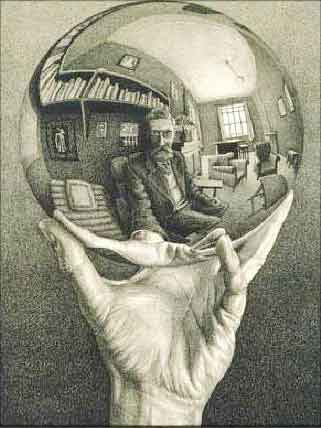

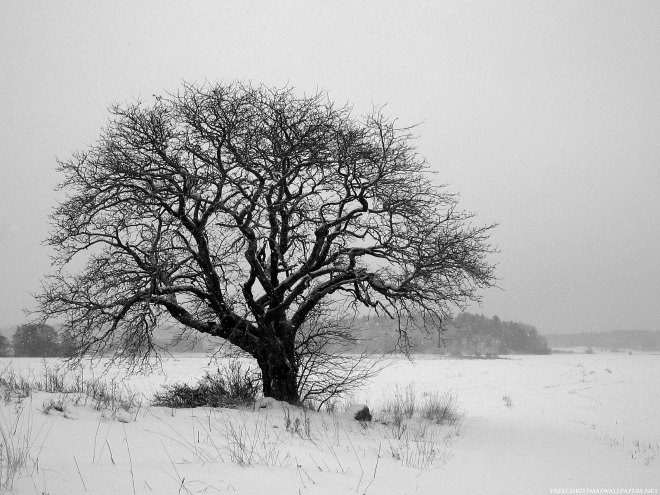
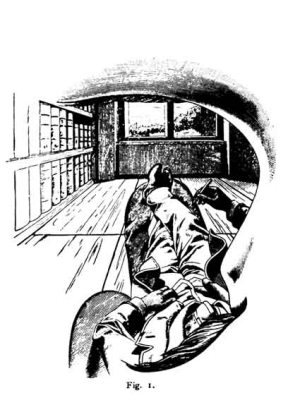
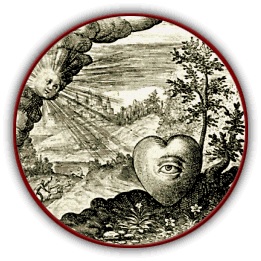 In the 1600’s Traherne wrote, “You never enjoy the world aright, till the Sea itself floweth in your veins, till you are clothed with the heavens, and crowned with the stars.” Traherne was a philosopher of enjoyment. He wrote, “Your enjoyment of the World is never right till every morning you awake in Heaven” (Centuries of Meditation). Wade (1944) writes of Traherne, “In the middle of the seventeenth century, there walked the muddy lanes of Herefordshire and the cobbled streets of London, a man who had found the secret of happiness… He became the most radiantly, most infectiously happy mortal this earth has known” (p. 2). This is the secret: It is in paying attention without thinking. Don’t be fooled by personality.
In the 1600’s Traherne wrote, “You never enjoy the world aright, till the Sea itself floweth in your veins, till you are clothed with the heavens, and crowned with the stars.” Traherne was a philosopher of enjoyment. He wrote, “Your enjoyment of the World is never right till every morning you awake in Heaven” (Centuries of Meditation). Wade (1944) writes of Traherne, “In the middle of the seventeenth century, there walked the muddy lanes of Herefordshire and the cobbled streets of London, a man who had found the secret of happiness… He became the most radiantly, most infectiously happy mortal this earth has known” (p. 2). This is the secret: It is in paying attention without thinking. Don’t be fooled by personality.
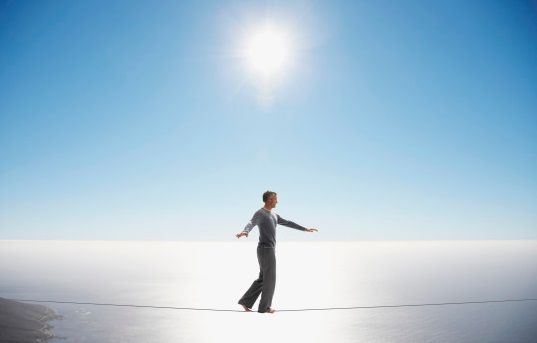
 Imagine that in your hands you hold an old bow and arrow. It is summer. The sun is rising. You are young and better looking than you are (why not?). All is quiet except for birds singing. You gaze up at distant hills and the last of midnight stars.
Imagine that in your hands you hold an old bow and arrow. It is summer. The sun is rising. You are young and better looking than you are (why not?). All is quiet except for birds singing. You gaze up at distant hills and the last of midnight stars.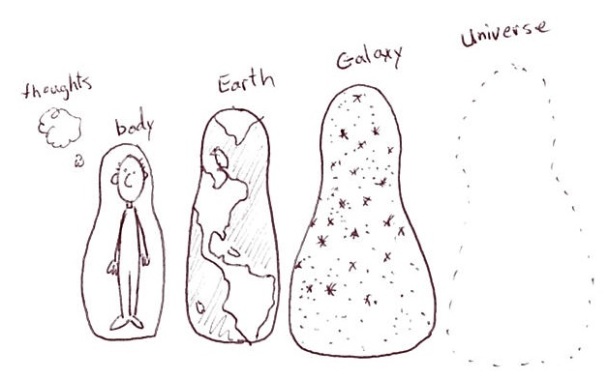



 Question anyone on a busy street anywhere in the world and ask: “How are you?” The reply could very well be, “I’m busy like everybody.” It’s the mantra of modernity. “Busy, busy” is said as humanity hives the world, but to complain is ineffectual, not to mention, unenjoyable.
Question anyone on a busy street anywhere in the world and ask: “How are you?” The reply could very well be, “I’m busy like everybody.” It’s the mantra of modernity. “Busy, busy” is said as humanity hives the world, but to complain is ineffectual, not to mention, unenjoyable.

 No doubt you’ll get strange looks. You might get reported for statue behaviour. Serious people will think you’re odd, but who cares? Odd numbers are not divisible by two. If you’re an odd number, you’re alone, but this is your secret power. If you can endure the loneliness, you are home wherever you are.
No doubt you’ll get strange looks. You might get reported for statue behaviour. Serious people will think you’re odd, but who cares? Odd numbers are not divisible by two. If you’re an odd number, you’re alone, but this is your secret power. If you can endure the loneliness, you are home wherever you are.

 To not do isn’t a lull between doings. You can be not doing and look busy. To not be busy is to take the time to watch something far away. It is to linger on a sensory memory (see
To not do isn’t a lull between doings. You can be not doing and look busy. To not be busy is to take the time to watch something far away. It is to linger on a sensory memory (see 
 If you want to will yourself happy, you need the courage and freedom to become nothing but an impersonal consciousness. This isn’t to say that you don’t care for others, it’s just that you are willing to be light as a feather. To be nothing-but-an-impersonal-consciousness means that you excuse yourself from self-importance.
If you want to will yourself happy, you need the courage and freedom to become nothing but an impersonal consciousness. This isn’t to say that you don’t care for others, it’s just that you are willing to be light as a feather. To be nothing-but-an-impersonal-consciousness means that you excuse yourself from self-importance.



 Happiness is not based on circumstance. A bum can enjoy life more than a millionaire. It’s in the attitude. That is what those old silent films of Charlie Chaplin were about. Through humour, a fighting spirit, and loneliness, anyone can experience life as utterly enjoyable. With this attitude, even when it’s bad, it’s good.
Happiness is not based on circumstance. A bum can enjoy life more than a millionaire. It’s in the attitude. That is what those old silent films of Charlie Chaplin were about. Through humour, a fighting spirit, and loneliness, anyone can experience life as utterly enjoyable. With this attitude, even when it’s bad, it’s good.